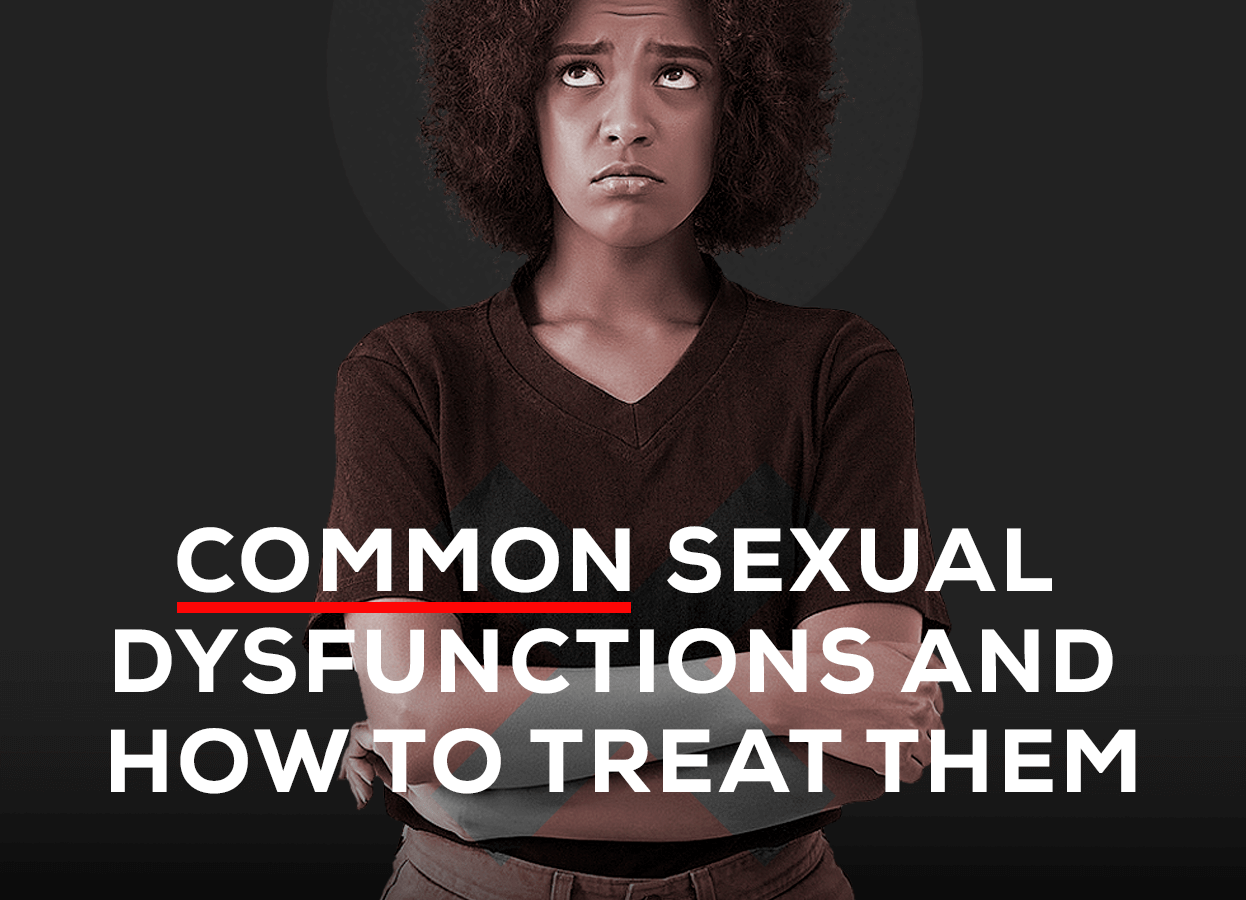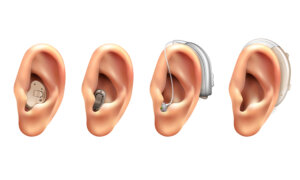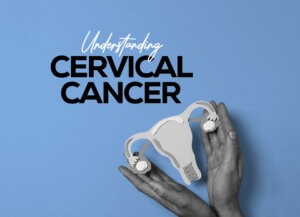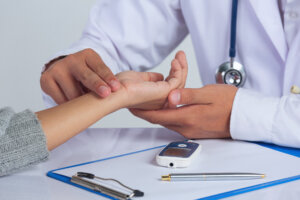Sexual dysfunction is a broad term that refers to any condition that makes it difficult for an individual to experience sexual satisfaction or to engage in sexual activity. Sexual dysfunction can affect both men and women and can take many different forms.
Some common types of sexual dysfunction include:
- Erectile dysfunction (ED) – Difficulty achieving or maintaining an erection during sexual activity.
- Premature ejaculation – Ejaculation that occurs before or shortly after sexual penetration, often before the person wishes it to.
- Delayed ejaculation – Difficulty achieving ejaculation, despite adequate sexual stimulation.
- Female sexual dysfunction – A range of conditions that can affect a woman’s sexual satisfaction, including difficulty achieving orgasm, pain during intercourse, or low libido.
- Low libido – A decrease in sexual desire or interest in sexual activity.
- Sexual aversion – A strong, persistent aversion to sexual activity.
Sexual dysfunction can have a variety of underlying causes, including physical health conditions, medications, psychological factors, and relationship problems. Treatment for sexual dysfunction will depend on the underlying cause and may involve a combination of medication, therapy, lifestyle changes, and other interventions.
Erectile disfunction
Erectile dysfunction (ED) is a common sexual dysfunction that affects men of all ages. It is characterized by the inability to achieve or maintain an erection firm enough for sexual intercourse.
ED can be caused by a variety of factors, including physical conditions such as heart disease, diabetes, high blood pressure, and obesity, as well as psychological factors such as stress, anxiety, and depression. Certain medications and lifestyle factors such as smoking, alcohol consumption, and lack of exercise can also contribute to ED.
Treatment for ED will depend on the underlying cause. Here are some treatment options:
Lifestyle changes: Making lifestyle changes such as quitting smoking, reducing alcohol consumption, eating a healthy diet, and getting regular exercise can help improve ED symptoms.
Medications: There are several medications available to treat ED, including sildenafil (Viagra), tadalafil (Cialis), and vardenafil (Levitra). These medications work by increasing blood flow to the penis, which helps to improve erections.
Therapy: Psychological therapy such as cognitive-behavioral therapy (CBT) can be effective for ED caused by psychological factors such as anxiety or depression.
Surgery: In rare cases, surgery may be recommended to treat ED. This may involve a penile implant or vascular surgery to improve blood flow to the penis.
It’s important to talk to a healthcare professional if you are experiencing ED. They can help identify the underlying cause and recommend the best treatment options for you.
Premature ejaculation
Premature ejaculation (PE) is a common sexual dysfunction that occurs when a man ejaculates sooner than he or his partner would like during sexual intercourse. This can occur within a minute or even before penetration.
PE can be caused by various factors such as anxiety, stress, relationship problems, and certain medical conditions. While occasional instances of premature ejaculation are normal, frequent occurrences can affect sexual satisfaction and relationships.
Treatment for PE will depend on the underlying cause. Here are some treatment options:
Behavioral techniques: Behavioral techniques such as the stop-start technique and the squeeze technique can help delay ejaculation during sex. These techniques involve stopping or pausing sexual stimulation before reaching the point of ejaculation.
Medications: Certain medications such as selective serotonin reuptake inhibitors (SSRIs) can help delay ejaculation. These medications work by increasing serotonin levels in the brain, which can help regulate ejaculation.
Therapy: Psychological therapy such as cognitive-behavioral therapy (CBT) can be effective for PE caused by psychological factors such as anxiety or stress.
Local anesthetics: Some topical creams or sprays containing local anesthetics such as lidocaine can be applied to the penis to help reduce sensitivity and delay ejaculation.
It’s important to talk to a healthcare professional if you are experiencing premature ejaculation. They can help identify the underlying cause and recommend the best treatment options for you.
Painful intercourse
Painful intercourse, also known as dyspareunia, is a condition that can affect both men and women and refers to discomfort or pain experienced during or after sexual intercourse. The pain may be sharp, burning, or aching and can occur in the genitals, pelvic region, or lower abdomen.
There are many potential causes of painful intercourse, including:
Infections, such as yeast infections or sexually transmitted infections (STIs)
Vaginal dryness due to hormonal changes, medications, or menopause
Injury or trauma to the genital area
Endometriosis
Pelvic inflammatory disease (PID)
Vulvodynia, a chronic pain condition affecting the vulva
Psychological factors, such as anxiety or depression
The treatment for painful intercourse will depend on the underlying cause. In some cases, treating an underlying infection or medical condition can help resolve the pain. For example, a woman with vaginal dryness may benefit from using a water-based lubricant or hormone therapy to increase vaginal moisture.
If psychological factors are contributing to the pain, therapy or counseling may be recommended. In some cases, a healthcare provider may also recommend pain management techniques, such as meditation or relaxation exercises.
In addition, a healthcare provider may recommend certain sexual positions or techniques that may reduce discomfort during intercourse. In rare cases, surgery may be recommended to address an underlying physical condition causing pain during intercourse.
If you are experiencing painful intercourse, it’s important to talk to your healthcare provider to determine the underlying cause and find an appropriate treatment plan.
Low Libido
Low libido, also known as hypoactive sexual desire disorder (HSDD), is a condition in which an individual experiences a decrease in their desire for sexual activity. It can affect both men and women, and can be caused by a variety of factors, including hormonal changes, medication side effects, stress, relationship issues, and mental health conditions such as depression or anxiety.
Treatment for low libido will depend on the underlying cause. Some potential treatment options include:
Medications: There are medications available that can help increase libido, particularly for women. These include flibanserin, which is approved by the FDA for the treatment of HSDD in premenopausal women, and testosterone replacement therapy, which may be recommended for men with low testosterone levels.
Therapy: Therapy can help individuals address psychological factors that may be contributing to low libido, such as anxiety or depression. Couples therapy may also be helpful for individuals experiencing relationship issues that are affecting their sexual desire.
Lifestyle changes: Lifestyle changes such as regular exercise, stress reduction, and a healthy diet can help improve overall sexual health and may help increase libido.
Communication: Open and honest communication with a partner about sexual desires and preferences can help improve sexual satisfaction and may increase libido.
Sexual aversion
Sexual aversion is a condition in which an individual experiences persistent or recurrent feelings of disgust, fear, or avoidance in response to sexual stimuli. It can manifest as a physical or psychological reaction that makes it difficult or impossible for the individual to engage in sexual activity, either alone or with a partner.
The causes of sexual aversion can be complex and may vary from person to person. Some common causes include past trauma or abuse, cultural or religious beliefs, anxiety or depression, or physical discomfort during sex.
Treatment for sexual aversion may involve therapy or counseling to help the individual address the underlying causes of their aversion and learn coping strategies. Cognitive-behavioral therapy (CBT) is a common form of therapy used to treat sexual aversion, as it can help individuals identify and challenge negative thought patterns that may be contributing to their aversion.
In addition to therapy, medications such as anti-anxiety drugs or antidepressants may be prescribed to help individuals manage their symptoms. Education about sexual health and communication skills may also be helpful in addressing sexual aversion.










